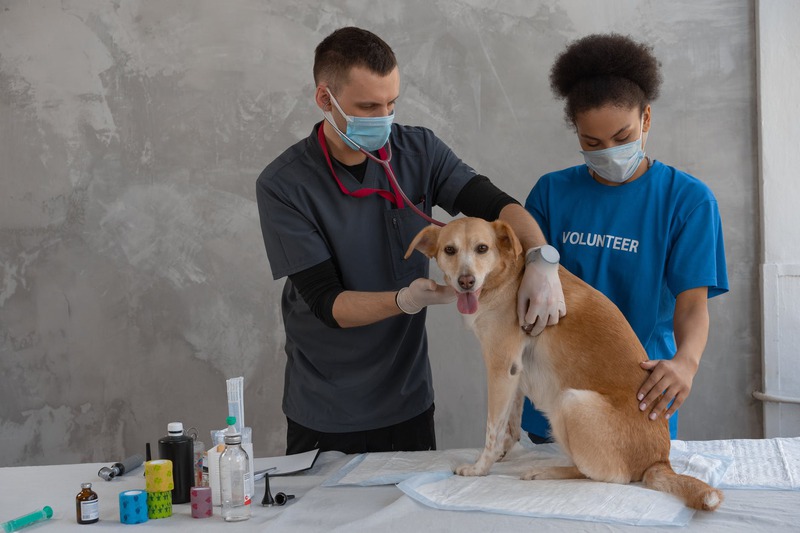As a pet owner, the health and well-being of your furry companion are among your top priorities. There comes a time in many pets’ lives when surgery might become a necessary consideration. It’s a decision that comes with its fair share of anxiety and questions. Knowing when surgery is the right choice is crucial to ensure the best outcomes for your pet. Below, we’ll explore various scenarios and provide insights to help guide you through this important decision-making process.
The Role of Diagnosis
Before considering surgery, it’s essential to have a thorough understanding of your pet’s condition. A diagnosis is the first step in this journey. Your veterinarian will likely recommend a range of diagnostic tests, including blood work and imaging, like X-rays or ultrasounds, to get a clear picture of your pet’s health concerns. It’s through these tests that the need for surgery might become evident.
Common Indications for Surgery
-
Emergencies: Situations such as foreign body ingestion, severe trauma, or life-threatening conditions like bloat (gastric dilatation-volvulus) often require immediate surgical intervention.
-
Chronic Conditions: Ongoing health issues, such as certain types of cancer, may eventually necessitate surgery to remove tumors or alleviate pain.
-
Quality of Life Improvement: Surgeries like dental extractions or the correction of congenital abnormalities can significantly improve a pet’s quality of life.
Should your pet require surgery, it’s reassuring to know that a professional like a dog surgeon specialist is trained to address a wide range of canine health issues surgically. These experts have dedicated years to honing their skills to provide the best possible care for your four-legged companion.
Considering Non-Surgical Alternatives
1. Medication
-
Pain relievers
-
Anti-inflammatory drugs
-
Supplements for joint health
2. Physical Therapy
-
Stretching exercises
-
Hydrotherapy
-
Massage therapy
3. Diet and Lifestyle Changes
-
Weight management
-
Specialized diets
-
Increased or modified physical activity
4. Veterinarian Guidance
-
Discussing potential benefits of non-surgical treatments
-
Understanding limitations and potential side effects
-
Making an informed decision with professional advice
Preparing for Surgery
Fasting Your Pet Before the Procedure
-
Follow your veterinarian’s guidelines for withholding food.
-
Generally, no food is to be given after midnight before surgery.
-
Water may be allowed, but check with your vet.
Arranging for Post-Operative Care
-
Plan who will pick up your pet after surgery and how they will be transported.
-
Understand any medication or treatment requirements.
-
Schedule follow-up appointments as recommended.
Setting Up a Comfortable Recovery Area at Home
-
Choose a quiet and safe space where your pet can rest without being disturbed.
-
Ensure that the area is clean to prevent infection.
-
Provide easy access to food, water, and a place to relieve themselves if needed.
Following Your Veterinarian’s Instructions Closely
-
Adhere strictly to any pre-and post-operative instructions given by your vet.
-
Be aware of signs of complications and when to call your veterinarian.
-
Keep a list of questions for your vet to address any concerns during recovery.
A Necessity for Surgical Consideration
A regular pet check up is a cornerstone of pet health maintenance. This check-up allows veterinarians to catch potential problems early on and monitor ongoing conditions. It is during this routine visit that your vet might first notice an issue that could eventually require surgical intervention. The relationship you build with your vet through this check-up will be invaluable as you navigate the decision of whether or not to opt for surgery.
Aftercare and Recovery
Post-operative care is essential for a successful recovery. Your veterinarian will provide specific instructions for aftercare, which may include medication, wound care, and activity restrictions. Be prepared to commit time and effort to your pet’s recovery process, ensuring they get back to their loving and playful self as quickly as possible.
A veterinary pharmacy in Kittrell, NC, can play a critical role in the continuum of care, ensuring that you have access to the necessary prescription medications, pain management options, and supportive care supplements to aid in your pet’s recovery.
Understanding Surgical Costs
Cost is a significant consideration for many pet owners. Surgery can be expensive, but keep in mind that it is often a one-time expense that can drastically improve your pet’s health and quality of life. Discuss payment options with your veterinarian, such as payment plans or pet insurance, which may help manage the costs.
Emotional Considerations for the Owner
It’s normal to feel a mix of emotions when faced with the prospect of pet surgery – concern, anxiety, and hope, to name a few. Support from family, friends, and veterinary staff can make a big difference in managing these feelings. Remember that you’re making the best choice you can for your pet’s well-being.
Final Thoughts
Deciding on surgery for your pet is tough. Stay informed, evaluate options, and collaborate with your vet for your pet’s well-being. A successful operation may lead to a healthier life. Remember, pets vary, and open dialogue with your vet is essential. Act as your pet’s advocate through their care journey.
Are you considering surgery for your beloved pet? Talk to your vet today about the best course of action. Your furry friend’s health is worth it.





